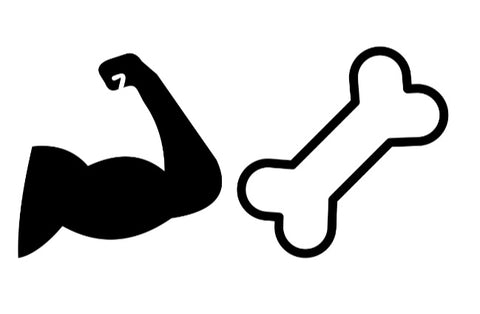was added to your cart
Vitamin D3 and K2 — Why Is Their Nourishing Partnership So Good for the Body?

Vitamin D3 and K2 — Why Is Their Nourishing Partnership So Good for the Body?
❓ How can you make sure you get enough of both of these vital nutrients?
❓ Get the answers you’re looking for in this easy-read guide.
Posted by Nutravita
ESSENTIAL TAKEAWAY:
Everyone knows about vitamin D — perhaps the most celebrated vitamin of all (along with its buddy, vitamin C!)
But what about D3, specifically?
Hmm. A lot of people get stuck there. Then you start talking about K2 and, well, eyes start to roll...
Confusing? Boring?
Maybe a bit of both.
So, let’s put a stop to that. Vitamin D3 and K2 made simple is what we need. And that’s exactly what you’ll get today:
Tell Me About the Benefits of Vitamin D3 and K2…
➡️ Should I Take D3 and K2 at the Same Time?
➡️ What Are Vitamin D3 and K2 Good For?
➡️ Vitamin D3 and K2 for Weight Loss — Is There Any Evidence?
How Much K2 to Take Per Day With D3?
What Are the Best Vitamin D3 and K2 Supplements?
➡️ UK Vitamin D3 and K2 — Where Can I Get It?
Tell Me About the Benefits of Vitamin D3 and K2…
Should I Take D3 and K2 at the Same Time?
Absolutely!Though vitamin D3 and K2 both have a special role to play in managing the body’s calcium stores, together, they’ve been called the “perfect pair.”
Basically, they function even better in partnership than they do when they’re taken apart from one another.
Jim Beakey — a leading member of Kappa Bioscience — says:
“Recent studies show that for vitamins D3 and K2, 1+1=3.”
A 2020 meta-analysis of the effects of the two vitamins showed promising results. Combined supplementation of vitamin D3 and K2 was found to significantly increase total bone mineral density (BMD).
And the upsides don’t end there...
The eight-study meta analysis discovered that D3 and K2 blends helped to regulate a biomarker called (and just warning: it’s a hell of a name to remember!)
Undercarboxylated osteocalcin.
Sheesh. Thanks, science.
Anyway, this biomarker is known to play a key role in glucose metabolism and regulating insulin resistance.
It seems that science is waking up to this powerful vitamin combo — and fast.
The D3/K2 market has exploded in the past decade, with over 300 new product launches in 2019. This compares to less than 20 D3 and K2 product launches in 2010.

Source: Nutrition Insight
What Are Vitamin D3 and K2 Good For?
Ooh, we could talk about this topic for days…
But we’ll spare you that. Let’s start with a quick run-through of vitamin D3, shall we?
Vitamin D3
D3 is referred to as the “sunshine vitamin” (aww, ain’t that sweet). Its technical name is cholecalciferol.
Your bone, teeth, and muscle health rely on the nutrients calcium and phosphate which, in turn, need a steady source of vitamin D to do their job.
A lack of vitamin D can cause bone pain, degradation, and even nasty bone deformities such as rickets.
Unlike D2, which is the other type of vitamin D, your D3 can be produced within the body. The trouble is, it relies on sunlight and animal-based foods to maintain a sufficient supply in the bloodstream.

Eggs and fatty fish are both good sources. But what if you don’t eat many animal products or live in a location that doesn’t get much sun?
Well, it could be a cause for concern…
As the NHS states, people in the UK don’t get enough Ultraviolet B (UVB) from sunlight between October and early March.
This stunts vitamin D production, meaning that other sources — such as supplements — have to step in to maintain the necessary level.
So if you’re living in a temperate climate like the UK, you may be wise to test your vitamin D levels.
Americans, too, struggle with getting enough vitamin D — almost 42% of the population are thought to be deficient.
RELATED: Everything You Need to Know About Vitamin D

Vitamin D3 is needed for bone and muscle health
Check Out Our Expert Recommended Blog Posts Below For More Top Tips & Advice
Vitamin K2
Right, onto the next part of the power couple — vitamin K2!
Like with vitamin D, vitamin K is needed to keep your bones healthy. But it’s also essential to help your blood clot, as well as having antioxidant properties to protect your cells.
There is K1 (which mostly comes from green, leafy vegetables) and K2 (which comes from fermented foods and animal proteins, such as organ meats).
In large-scale studies, taking high amounts of vitamin K2 has been found to lower the risk of artery-related diseases.
This association was particularly strong in people who had hypertension (high blood pressure).
Dietary sources of vitamin K2 include red meat, liver, kidneys, oily fish, eggs, and soybeans. Still, the quantity of K2 in these products can be pretty low, making it hard to consume enough.
Known risk factors for having a vitamin K deficiency are:
- Blood-thinning medication (such as warfarin) that lowers vitamin K activity
- Antibiotics that decrease vitamin K absorption
- Diets low in natural sources of vitamin K
- Supplementation with especially high doses of vitamin A or E

Vitamin K2 is needed to clot blood and help protect from heart disease
Vitamin D3 and K2 for Weight Loss — Is There Any Evidence?
Yep! There’s a growing body of evidence to show that vitamins D and K can both support healthy weight management.
Research has found that participants given a daily calcium-vitamin D supplement were able to shed more pounds than those who were given a placebo.
What’s more, associations are seen between body mass index (BMI), body fat percentage, and low vitamin D — of which, D3 is one of the two main types.
Now, what about vitamin K2?
Scientists in a clinical nutrition study tested the link between vitamin K intake and reduced body fat.
They discovered that vitamin K2 supplementation can support weight loss, especially the loss of fat in the abdominal regions.
Naturally, no one wants to put up with stubborn fat around their belly.
So, increasing your K2 intake may be worth exploring if this is an issue you’re dealing with.
How Much K2 to Take Per Day With D3?
First, let’s discuss vitamin D3.
The recommended amount of vitamin D is up to 4,000 IU per day (100 mcg). This remains the same for adults, older adults, and children between the ages of 11 and 17.
And as for vitamin K2?
The average adult is advised to get at least 100 micrograms (mcg) of vitamin K2 per day, with the upper threshold being around 300 mcg.
A misconception is that taking calcium is the only thing you need to do for your bone health. But increased calcium intake without having enough vitamin K2 can end up doing more damage...
Why?
Because without the necessary amount of K2, calcium isn’t absorbed as well as it needs to be and stays in the bloodstream.
As a result, this can lead to high blood pressure, due to the calcification of the arteries. There can also be an increased risk of heart disease, which I’m sure you’d rather avoid!
What Are the Best Vitamin D3 and K2 Supplements?
The big question — and obviously we’re going to be biased here!
Nonetheless, there are a few reasons why Nutravita offers one of the best vitamin D3 and vitamin K2 supplements.
Our team has taken the recommended amounts of vitamin D3 and K2 into account with our capsule dosing.
You get 3000iu of vitamin D3 and 100 mcg of vitamin K2 in one daily capsule. An easy-peasy nutrient booster.

Nutravita Vitamin D3 and K2
Now, feel free to click through to the product description page above, or you can browse the extra features here:
- GMO-free ingredients
- No synthetic binders or fillers
- Vegetarian friendly
- 120 capsules in one bottle (2-month supply, rather than having to re-order every fortnight!)
And as a nutritious bonus, the vitamin K2 in this supplement comes in its MK7 form. MK7 is regarded as one of the two most vital vitamin K2 subtypes for human health.
UK Vitamin D3 and K2 — Where Can I Get It?
The Holland and Barrett vitamin D3 and K2 supplement is currently priced at £19.99 for 60 capsules. Their supplement includes the same amount of vitamin D3 and K2 as is contained in each of the Nutravita capsules.
However, the supplement costs more at Holland and Barrett. 
Plus, the Nutravita bottles have twice the amount of capsules that Holland and Barrett provide. Simple choice?
We think so!
Of course, there are other places that you can get vitamin D3 and K2 in the UK. But always watch out for any additives you weren’t expecting...
You don’t want GMOs or synthetic binders sneaking in alongside the healthy vitamins!
Thanks for stopping by!
If you have any further questions about vitamin D3 and K2, send them our way on the Nutravita Contact Us page.
Or if you’re ready to buy, why not grab yourself a bespoke vitamin D3 and K2 super blend?
To healthier days,
Nutravita.
P.S. Want to tip off a friend or family member about the importance of vitamin D3 and K2?
Spread the word and forward this blog using the share buttons above.
Co-written by Declan Davey — Health Copywriter
RELATED ARTICLE

7 Reasons Why You Might Consider Adding Supplements To Your Daily Routine
**Disclaimer: Nutravita’s blog content is for informational purposes only. It should not be viewed as a substitute for professional medical advice or guidance. If you are worried about your health, we recommend that you contact your doctor. Please do not ignore your doctor’s advice because of any information on https://www.nutravita.co.uk/.
Image attributions:
<a href="https://storyset.com/health">Illustration by Freepik Storyset</a>
<a href="https://storyset.com/work">Illustration by Freepik Storyset</a>
<div>Icons made by <a href="https://www.flaticon.com/authors/srip" title="srip">srip</a> from <a href="https://www.flaticon.com/" title="Flaticon">www.flaticon.com</a></div>